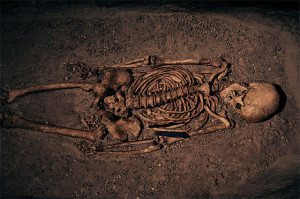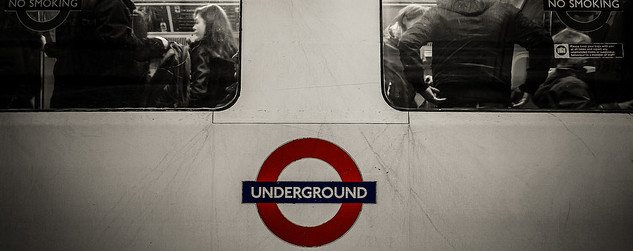Underground by Beth Hurst (Boar Short Story competition: second place)
This story was awarded second place in the Boar‘s short story competition 2014.
Underground
The manager said keep digging. Hacking at the wall of earth before us, the soil was just too dense. It was as dry as Saharan sand, unexpected for the ground lying beneath London. I wondered whether Hyde Park above had drained away all the moisture. Roots of rose bushes and cherry trees winding down, starving the earth of nutrients to supply its mid April blooms.
I wiped my forehead and continued my work. We were a strong team of twenty, men from the great Universities: Oxford, Manchester, even the head of Archaeology from Kings College, Cambridge. The dig was a combination of historical excavation and a labourers removal. We had conflicting interests with the builders, who provided the sheer muscle and engineering needed to make the tunnels. They laughed while eating the lunches their wives made them, as we sombrely got to work. We were only there because they had encountered a problem.
 “We had to stop here,” the dig manager told us, “the earth just isn’t letting us get through. As stubborn as my missus.” He tapped the soil with his elbow to demonstrate. He was a truthful man, probably more suited to grave digging than making a new underground line. He wiped the mud off his hands with a dirty handkerchief.
“We had to stop here,” the dig manager told us, “the earth just isn’t letting us get through. As stubborn as my missus.” He tapped the soil with his elbow to demonstrate. He was a truthful man, probably more suited to grave digging than making a new underground line. He wiped the mud off his hands with a dirty handkerchief.
“What’s the estimate?”
“Well it’s a dry level, something about the density seems to be your problem,” I replied. Even the machinery couldn’t get through, never mind pure man power. The wall of black soil facing us loomed, laughing in our feeble faces.
Whatever was stopping the drills would probably be discovered just inches into the soil. I took the brush in my hand and started to scrape away the layers.
The engineers laughed at the pathetic attempt of a scholar with his delicate brush. I kept going, until I felt a shape underneath. Hard, probably just a piece of rock. A few more layers and the object took shape, a brown flaking curved object. The onlookers stopped murmuring and came closer. It was unmistakable, I’d seen thousands at the museum and on the digs in Egypt. It was revealed slowly, the rounded spaces where two eyes once were, and a set of chipped milk teeth.
At once the team sprung to action, brushing away the other areas around the skull. Around it was a femur, a rib bone, metatarsus of varying sizes. The bones interlocked into a confusing jigsaw. Unmistakeable children’s bones next to large male hands and female hips. They had melted together over the years, creating a map of human structures, as confusing as the proposed underground map.
The manager entered the dig site still adjusting his helmet.
“Alright lets get started what’s going…Christ”. He dropped his clipboard onto the planked floor. It’s not every day you discover a mass grave.
*
I took the Piccadilly line with William the day it opened, as did everyone else it seemed. Men crowded into the carriage, holding their hats to their chest, and their briefcases under their arms. The train turned a corner sharply, sending a slight panic through the crowd. I gripped my son’s hand a little tighter, but he didn’t seem to notice. The previous straight route had been abandoned the very day I left it.
Coming out at South Kensington we walked to Hyde Park and I sat on the bench in the Italian gardens. The blossom had started to fall and covered the pathways in a carpet of pink. I tried to imagine gravediggers carrying plague infested bodies to the deep pits and tossing them into the depths. Congested knots of limbs, men and women merged, united in death. Bones intersecting like the roads that lay above the soil.
William ran through the garden, caught in the falling blossoms and twisting in amongst the trees. I thought about the roots beneath, tangled into the mass of interlaced bodies. London’s past sleeping side-by side the present mass of people transported between them. I boarded the underground back home like a coffin. William pressed his face against the glass, unaware whose territory he invaded beneath the ground.
About the author
Beth Hurst is a first year English Literature and Creative Writing student, who wrote ‘Underground’ as part of her first year Modes of Writing Fiction coursework submission. It was inspired by a photograph of the mass graves underneath Hyde Park. Beth has also won 2nd place in the 2013 Lancaster Writing Awards for Poetry with ‘Was this your Card?’, and was highly commended for ‘Two Artists’ in the National Flash Fiction Youth Competition 2014, organised by Chester University and Flash.
Image Credits: Header (Flickr/Michael Erhardsson), Image 1 (Flickr/Martin Johansson)

Comments (1)